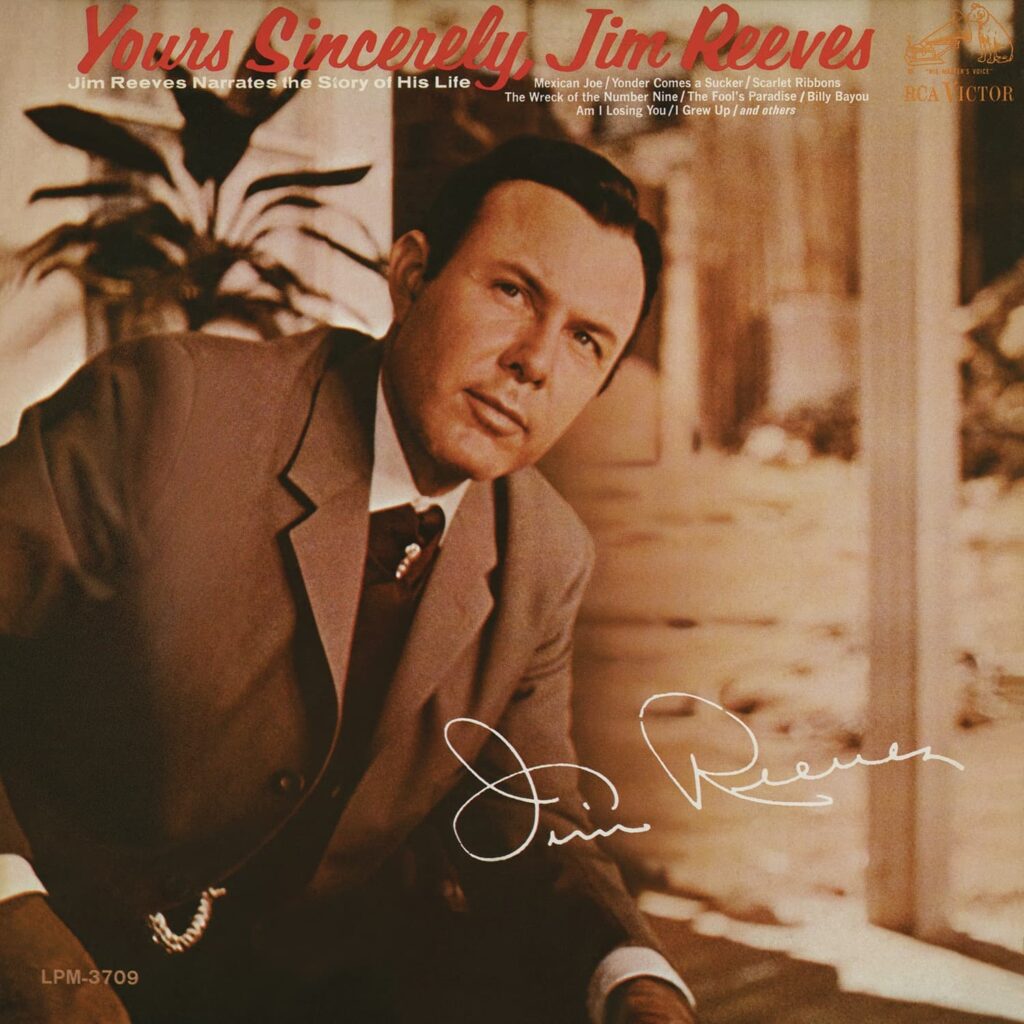
The Velvet Baritone’s Optimistic Standard
To speak of Jim Reeves is to conjure a sound—a voice like the smoothest, darkest velvet, capable of turning the simplest ballad into a profound, intimate conversation. He wasn’t just a singer; he was the very embodiment of the “Nashville Sound” at its most polished and sophisticated, earning him the deserved moniker, “Gentleman Jim.” While many remember him for mournful classics like “He’ll Have to Go,” his genius also lay in his ability to imbue even the cheeriest of standards with his signature, melancholic warmth. Nowhere is this more perfectly illustrated than in his recording of the Irving Berlin masterpiece, “Blue Skies.”
Jim Reeves recorded his rendition of this timeless song on November 21, 1961, right in the heart of Nashville, Tennessee, under the legendary producer Chet Atkins. It was featured on his 1962 album, A Touch of Velvet, which itself was a testament to his shift away from raw honky-tonk toward the elegant, string-laden country-pop style he pioneered. While “Blue Skies” was not released as a standalone single in the US and did not register on the Billboard Hot 100 or Hot Country Songs charts at the time, its impact was felt through the enduring popularity of the album. The album A Touch of Velvet later gained significant traction, especially in the UK, where it charted posthumously, showing the enduring appeal of these velvet-smooth recordings. For countless listeners, this album became a staple of easy listening, with “Blue Skies” serving as a shining moment of measured optimism.
The song’s history is nearly as famous as the artist who sang it. Written by the iconic Irving Berlin in 1926, it was famously introduced in the musical Betsy and has been recorded by everyone from Al Jolson and Frank Sinatra to Ella Fitzgerald. However, Reeves manages to make it entirely his own. Under Chet Atkins’ meticulous guidance, the production envelops Reeves’ baritone in a luxurious arrangement featuring piano (likely by the great Floyd Cramer), smooth saxophone lines, and the sweet backing vocals of the Anita Kerr Singers. It is a perfect example of the “Nashville Sound”—a clean, commercial approach that made country music palatable to a broader, pop-oriented audience.
The meaning of “Blue Skies” is profoundly simple: it’s a song about the steadfast conviction that difficult times will pass, giving way to happiness. The “blue skies” represent hope and joy, following the “black clouds” of trouble. In Reeves’ delivery, this message of hope feels earned. His vocal tone, naturally tinged with a beautiful, understated sadness—a legacy of his hard country roots—gives the cheerful lyrics a quiet, comforting gravity. It’s not a shouting-from-the-rooftops kind of happiness; it’s a serene, knowing confidence that the bad days are temporary.
For those of us who came to know Gentleman Jim’s work in the 1960s and beyond, often after his tragic, untimely death in 1964, his version of “Blue Skies” carries an additional, wistful layer of poignancy. It is a voice from the past, a calm promise delivered by a man whose life was cut short too soon. Yet, the recording itself is an eternal burst of sunshine, a sweet, musical memory that still has the power to brighten the gloomiest of days, reminding us, just as he did, to look up and wait for those brighter days.